Search Results
Showing results 1 to 20 of 23

In the Middle
Source Institutions
In this game-like activity (5th activity on the page), learners explore their auditory acuity as well as the importance of having two ears.
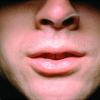
Vibrant Cords
Source Institutions
In this activity, learners will explore how the voice works and feel the vibrations produced by vocal cords.
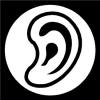
Mystery Noises
Source Institutions
In this game (4th activity on the page) about hearing, learners test their ability to identify various sounds without looking.
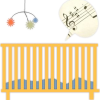
Battle the Baby!
Source Institutions
In this interactive game, learners compare their music-listening skills with that of a three-month-old baby.

Caller ID: The Frog - and Toad! - Mating Game
Source Institutions
This activity is a sensory experience that recreates the sounds of a pond at night.
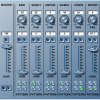
Build a Soundscape
Source Institutions
This is a virtual representation of a sound mixer containing pre-looped sounds of animal, insect, and environmental noises.

Stereo Sound
Source Institutions
We listen to stereo music systems, tv's, and radios because it simulates being where the sound originates.
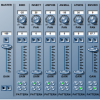
Sound Mixer: A Multi-track Mixer of Animal Sounds
Source Institutions
This is a virtual representation of a sound mixer containing pre-looped sounds of animal, insect, and environmental noises.

Stethoscope
Source Institutions
Make a copy of the first stethoscope with only a cardboard tube! René Laennec invented the first stethoscope in 1819 using an actual paper tube!
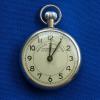
Auditory Acuity
Source Institutions
This activity (8th activity on the page) tests learners' ability to identify things using only the sense of hearing.

Right Ear/Left Ear
Source Institutions
In this activity (4th on the page), learners conduct a series of tests to find out which of their ears is more dominant.
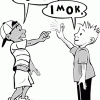
I M O K. U R O K.: You Can Make Sentences Without Words!
Source Institutions
Can you read the sentence "I C U"? Not really - but if you say each letter aloud, you'll say the simple sentence, "I see you." What if you change the "C" into a picture of an eye?
Catch the Beat
Source Institutions
This is an activity about music, movement, and math. Learners will start a rhythm pattern with 2, 3, or 4 beats. For instance, tap your foot, jump, clap, repeat.

A Penny Saved is a Penny Heard
Source Institutions
In this activity (11th activity on the page), learners use pennies to test their hearing acuity.
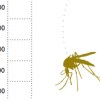
The Mosquito/El Mosquito: Interactive Sound Game
Source Institutions
In this online activity, learners test their ability to hear different frequencies and compare their frequency range with the frequency range of other animals and insects.
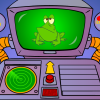
Zap!
Source Institutions
This online game tests reaction time. The learner controls a computer-generated frog, and must press a button as soon as a fly appears on the game's radar screen or can be heard from the speaker.

String Thing
Source Institutions
String Thing is an interactive online game in which learners change a virtual string's tension, length, and gauge to create different musical pitches.

Audio Memory
Source Institutions
In this interactive game, learners will test their memory of animal and insect sounds. Flip over cards, listen to the sound, and try to find the ones that match.
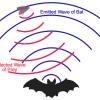
Bat Echolocation
Source Institutions
In this activity, learners investigate how bats use echolocation to navigate. One learner is assigned to be a bat, while the other learners are selected to be either moths or trees.
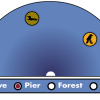
Place Matters: How Sound Changes Due to Environment
Source Institutions
This is an online simulation of how sound changes due to environment. How does place--like a cave, a pier, or a forest--affect certain sounds?
